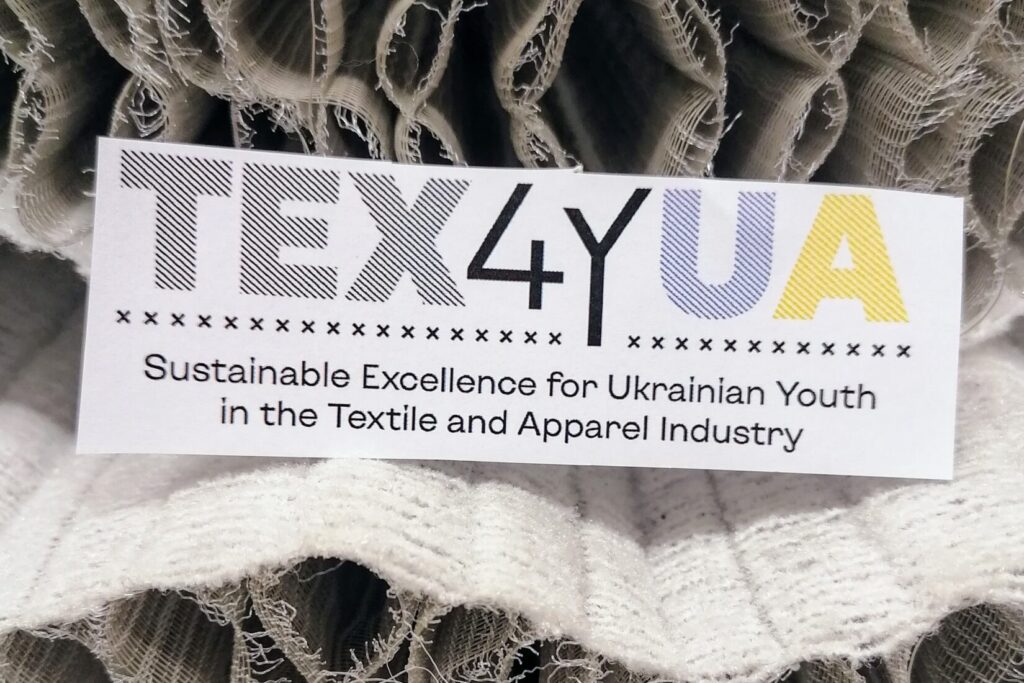Textile cooperation between Sweden and Ukraine

Source:University of Borås
In the midst of wartime, young adults from the Ukrainian Engineering Pedagogical Academy in Kharkiv and students from Lutsk National Technical University are being prepared to become the next important centre in the world for textile production. With the help of digitisation and AI, the University of Borås offers the students comprehensive training and practical labs.
Tuser Biswas, at the University of Borås, is responsible for the execution of the project called TEX4YUA. He has a long-standing relationship with SI and says:
– I am here in Sweden now because of SI. In 2014 I received a scholarship from SI to do my masters education at the University of Borås. Now I am a post-doc at that institution and very committed to build cooperation with Ukrainian universities and to help young students over there. TEX4YUA is an entrepreneurial project that will help to build the future of textile industry and strengthen cooperation between Ukraine and Sweden.
Tuser Biswas says the project creates a win-win situation:
-For our university it is very important to build relationships with new partners. We will also be able to transfer and exchange knowledge with the Ukrainian universities and industries.
– Furthermore , there will be a much-needed development of textile factories in Ukraine, within Sweden’s proximity, capable of producing sustainable textiles at an affordable price.
Tuser Biswas mentions the situation in many Asian countries where the majority of Swedish and European garments are produced today:
– There are concerns about worker rights and environmental regulations in many of these textile production countries. So, it will be better to bring some of the production inside or near to Europe such as in Ukraine where better production conditions can be ensured. However, this calls for a well-trained work force with knowledge about production of high-performance and functional textile products for creating a sustainable and circular textile industry.
The students in Ukraine will benefit from at least two new courses focusing on how to make textile production circular, sustainable and how to minimize the effects of pollution. The courses will be developed in cooperation with their teachers from Ukraine who will also come to Sweden for a two-week study visit to Borås to learn about the various laboratory machines, production methods and ongoing research efforts at the Swedish School of Textiles (Textilhögskolan).
The project will also help young Ukrainian women, currently working in any textile related small or medium-sized enterprises by training them about business and production ideas on how to innovate functional textiles for various application areas like military clothes, medical and infrastructure related textiles to meet Ukraine’s current and post-war industry demands.
AI and digitisation are important tools to realise the project, especially in times of war.
– We will make video lessons and the students in Ukraine will get real life experiences of our lab with the help of various AI-tools, says Tuser Biswas.
The TEX4YUA project is funded within the SI Baltic Sea Neighbourhood Programme which had a special call for Ukraine in the summer of 2023. The special call differs from other projects within the programme in that the main benefit of the approved projects are directed towards target groups in Ukraine. SI has a long history of funding multilateral projects that include Ukraine, in which Swedish organisations work on cross-border challenges and opportunities together with organisations from the EU countries around the Baltic Sea and countries of the EU’s Eastern Partnership.
– SI has a long track record of funding projects that help tackling cross-border challenges such as the environment, sustainable development, and technological advances in the region. Our funding has also proved to be important to prepare applications for new funding, mainly from the EU, says Kurt Bratteby, Head of the Department of International Relations at the Swedish Institute.
In March, a new bilateral programme, aimed at funding projects in Ukraine, will be launched – The SI Ukraine Cooperation Programme. It builds on the Swedish government’s strategy for reconstruction and reform cooperation with Ukraine. Projects approved in this new programme are expected to support reform in Ukraine and contribute to a freer, more resilient, and economically prosperous Ukraine on its way to EU membership.
– This new bilateral programme is a great opportunity for Swedish businesses, universities, municipalities, and organisations who want to contribute to the reconstruction and rebuilding of Ukraine in cooperation with partners in Ukraine. We hope that it will be possible for Swedish actors to identify project partners in Ukraine and that the project proposals will be relevant in relation to the needs in Ukraine, says Kurt Bratteby.